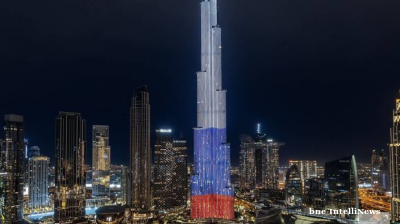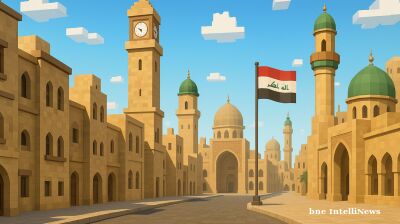Israel's early morning October 26 strikes on Iran, while unprecedented as the first overt attack on Iranian soil since the Iran-Iraq War, appear deliberately limited and may signal a testing phase rather than a decisive operation, according to military and security analysts.
The Israeli Air Force’s strikes on several locations across the country came early on October 26, with many in the Iranian capital and elsewhere unaware of the strikes until morning, local Press TV reported. Several locations were reportedly hit, including Tehran, Karaj and Hamedan in the west of the country; however, Iran claims its air defence capabilities were able to shoot down the majority of Israeli missiles.
Regional neighbours of Iran were quick to condemn the attacks, including Oman, Saudi Arabia and Iraq, while other countries, including Malaysia and Russia, have protested the strike. "The Kingdom of Saudi Arabia expresses its condemnation and denunciation of the military targeting of the Islamic Republic of Iran, which is a violation of its sovereignty and a violation of international laws and norms”, Riyadh's Foreign Ministry wrote.
Western leaders have been mostly critical of Iran, with the British Prime Minister in an early morning press conference warning Iran not to respond. "I am clear that Israel has the right to defend itself against Iranian aggression. I'm equally clear that we must avoid further regional escalation and urge all sides to restrain. Iran should not respond," Starmer said in a press conference following the Israeli strike.
US political analyst Nizar Farsakh suggests the unexpectedly modest scale of Israel's attack could indicate either compliance with US requests to avoid hitting oil and nuclear facilities or a probe of Iranian air defences preceding a more precise future strike. This two-stage strategy, if implemented, would aim to degrade Iran's air defence capabilities before targeting more significant military infrastructure.
"We need to wait a day or two to see if there will be a continuation of this attack," Farsakh said. "I think they will target IRGC-related facilities, Revolutionary Guard sites, possibly weapons factories, drone production facilities or missile warehouses." He noted the absence of immediate signs that Iran is preparing a response, suggesting Tehran may not consider the strikes significant enough to warrant retaliation.
Iran has publicly downplayed the attacks' impact, with senior official Mohsen Rezaei characterising Israel's action as "driven by fear and desire to flee the battlefield rather than demonstrate strength." Iranian sources dismissed reports of over 100 Israeli aircraft participating as attempts to "exaggerate the scale of their weak attack," though they acknowledged "limited damage" to some military sites.
Policy expert Farzan Sabet provides a more nuanced analysis, arguing Iran's response will likely depend on three critical factors: "the scale of the attack, choice of targets, and level of overtness." He notes Tehran would be more sensitive to large-scale strikes targeting leadership or civilian infrastructure compared to deniable covert operations.
"The heightened level of conflict with Israel, as well as the deterioration in Iran's conventional deterrence, will also increase pressure on the Islamic Republic to further develop its nuclear option," Sabet wrote on social media platform X, suggesting the conflict could have longer-term strategic implications beyond the immediate military exchange.
The strikes come after Iran's October 1 operation that launched approximately 400 ballistic missiles at Israel, marking a significant escalation in direct confrontation between the two states. While Iranian officials had prepared at least ten response plans for an Israeli retaliation, they had indicated they would not respond to limited attacks, suggesting a tacit understanding of escalation management.
A US administration official said Washington hopes the Israeli strike will end the confrontation cycle, though it remains ready to assist with additional operations if requested. This statement reflects the delicate balance the US is trying to maintain between supporting its ally and preventing broader regional conflict.
Iran's air defence forces claim to have successfully intercepted several Israeli projectiles, though the exact extent of damage remains under investigation. The attacks targeted positions in Tehran, Khuzestan and Ilam provinces, marking the first time Israel has struck multiple locations across Iran simultaneously.
A spokesman for US President Joe Biden's administration told reporters at a briefing that Israel's latest strike on Iran should end the standoff between the two countries, but Washington is ready to help carry out additional attacks if it wishes.
The conflict takes place against the backdrop of ongoing tensions in Gaza and frequent exchanges along the Israel-Lebanon border, adding to the complexity of regional security calculations.
Israel's strike on October 26 has left Iran in an awkward position, but Tehran may hold off on a decisive retaliation for now. The coming days will be crucial in determining whether this exchange marks the end of the current escalation cycle or the beginning of a new, more dangerous phase in the Iran-Israel confrontation. As it stands, the limited nature of the attacks and the seemingly low scale of the strike provide both states an offramp if cooler heads prevail.
However, the possibility of a regional escalation remains, particularly if Iran seeks to respond. The IDF released the following statement in Hebrew:
"The extent of the damage and the results will become clear later, but the IDF already has a wider freedom of action. We are focused on the goals of the war in Lebanon and Gaza, and Iran is pushing for a regional escalation.
We are at peak readiness in defence and attack and there is no change in the directives of the Home Front Command. We are in a continuous intelligence and operational situation assessment. We have proven that we can attack at any point in the Middle East."
Features

CEE needs a new growth model as FDI plunges
wiiw economist Richard Grieveson says the CEE region’s long-standing model of attracting FDI through low labour costs no longer works.
KSE: Ukraine is facing a $53bn budget shortfall, but economy is stable for now
Ukraine is in urgent need of additional financing from partners as the continuation of the war drives up defence spending and reconstruction needs, jeopardizes budget financing, weighs on the balance of payments, and slows economic growth.

PANNIER: Ruling family’s ‘palace in the sky’ cruel sight for Turkmenistan’s poor souls down below
Photos posted of renovated Boeing by US makeover manager offer further insight into "ultra-luxurious" world enjoyed by Berdimuhamedovs.

Russia tax service targets Russian accounts in UAE
The Russian Federal Tax Service (FTS) has ramped up its scrutiny of Russian nationals holding accounts in the United Arab Emirates, following the effective implementation of automatic tax information exchange between the two countries.

_0.jpg)


